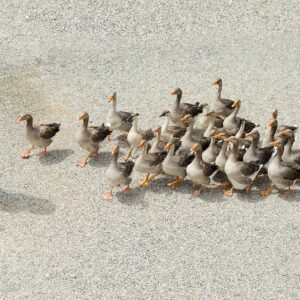Dog owners often consider neutering their pets for various reasons – from population control to avoiding certain health and behavioural problems. Despite these wide-spread beliefs and practices, there’s a hitherto periphery topic that deserves attention. This is the connection between neutering and potty training in dogs.
A Basic Overview of Neutering
Neutering, also known as castration in males and spaying in females, is a surgical operation that removes a dog’s reproductive organs. The procedure is generally safe and is often recommended by vets to prevent overpopulation and to curb any potential health problems.
The Impact of Neutering on a Dog’s Behavior
Neutering does more than just stopping a dog from reproducing – it can also affect their behavior. This is largely due to hormonal changes induced by the procedure.
Effect on Aggression
One of the most well-known behavioral changes observed in dogs following neutering is a reduction in aggression. Neutered dogs are generally calmer and less likely to exhibit dominance or territorial behaviors.
Effect on Marking Behaviors
Neutering can also greatly reduce instances of marking behaviors, especially in males. Marking involves urinating in small amounts on vertical surfaces, usually as a way to communicate to other dogs.
Potty Training Overview
Potty training, also known as housebreaking, is the process of teaching a dog to eliminate in a designated area, which is usually outside. The most optimal time to start potty training is when the puppy is between 12 weeks and 16 weeks old.
The Connection Between Neutering and Potty Training
Alteration in Urination Habits
Post-neutering, dog owners may notice a change in their pets’ urination habits. As previously mentioned, neutering can reduce marking behavior which includes urination in inappropriate places. This transition might help facilitate the potty training process.
Enhanced Focus during Training Sessions
Reduced aggression and decreased propensity to be distracted by sexual urges in neutered dogs might make them more receptive during training sessions, including potty training.
Neutering and Potential Hiccups in Potty Training
While the positive effects of neutering can potentially aid the potty training journey, it is also essential to address some challenges it may cause.
Incontinence
Post-surgical incontinence may occur in some neutered dogs, particularly females. This could temporarily or indefinitely complicate the potty training process. However, this is generally rare and can often be managed with medications.
Conclusions: Is Neutering Beneficial for Potty Training?
While there is a connection between neutering and potty training, the impact is not uniform for all dogs. Some dogs may benefit from neutering when it comes to house training, especially if they have difficulty controlling their marking behaviors. However, neutering should not be perceived as a magic bullet for potty training challenges. It’s a complex procedure with more far-reaching implications on a dog’s health and behaviour.
Successful potty training relies more on consistent training methods and patience. If you find yourself struggling with this aspect of dog training, consider seeking help from a professional trainer or a behavioral expert.



